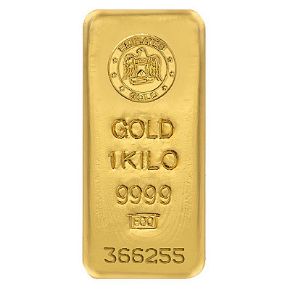
Cryptocurrency investors around the world face one universal challenge: taxation. As governments tighten regulations, digital assets are increasingly tracked, reported, and taxed in ways that often surprise unsuspecting investors. While exchanges make it convenient to trade, they also provide tax authorities with a clear record of your transactions. Fortunately, there is a legal and effective way to manage these liabilities: investing in physical gold instead of leaving assets on exchanges.
The Tax Trap of Crypto Exchanges
Exchanges are not just marketplaces—they are record-keepers. Every trade, deposit, and withdrawal leaves a digital footprint that may be shared with tax authorities. Some common ways crypto taxes become overwhelming include:
Capital Gains Taxes: Selling crypto for fiat currency or even exchanging one token for another triggers taxable events.
High-Frequency Trading Records: Active trading on exchanges generates complex transaction histories, making accurate reporting difficult and exposing investors to audits.
Custodial Reporting: Many exchanges now comply with international regulations such as FATCA and CRS, automatically sharing user data with tax agencies.
The result? Even profitable crypto investors can face unexpected tax bills and penalties if not careful.
Why Gold Is a Smarter Alternative
By strategically converting crypto profits into physical gold, investors can mitigate tax burdens in several ways, all while staying within legal boundaries. Here’s why:
No Ongoing Capital Gains from Price Fluctuations
Unlike holding crypto on exchanges, gold held in physical form does not generate ongoing taxable events. Its value may rise or fall, but unless you sell it, no taxes are triggered.Deferral of Tax Liability
Converting crypto into gold allows investors to legally defer tax events until the gold is sold in the future. This creates breathing room for strategic planning.Asset Reclassification
Gold is recognized globally as a tangible commodity, not a digital financial instrument. This changes the tax treatment in many jurisdictions, often offering more favorable rates.Privacy and Security
While legal reporting must always be respected, gold ownership does not involve the constant monitoring and automatic reporting that centralized exchanges are increasingly subjected to.
How to Legally Convert Crypto Into Gold
To ensure compliance and optimize tax outcomes, investors should follow a structured approach:
Use Licensed Conversion Platforms
Always choose regulated platforms that offer direct crypto-to-gold transactions. This ensures transparency and legitimacy in case of audits.Document the Conversion
Keep records of the crypto used, the gold purchased, and the valuation at the time of conversion. These documents are vital for accurate tax reporting.Decide on Storage
Self-Custody: Taking delivery of bullion or coins offers full control.
Vaulted Custody: Many services provide secure, insured storage that can be more practical for larger holdings.
Work with a Tax Professional
Local tax laws differ. A knowledgeable advisor can help structure conversions to maximize legal benefits while ensuring compliance.
The Legal Advantage of Tangible Assets
Governments recognize gold as a legitimate asset class, and its taxation framework is centuries old. This contrasts with the constantly evolving regulatory treatment of cryptocurrency. By shifting from an unstable regulatory environment (crypto exchanges) to a well-established one (gold), investors gain predictability and security.
Gold as a Long-Term Wealth Strategy
The goal isn’t to abandon crypto—it’s to balance risk and optimize taxation. Gold acts as:
A hedge against inflation
A stable store of value during market downturns
A diversification tool to smooth portfolio volatility
By moving some crypto profits into gold, investors not only reduce taxable exposure but also build a more resilient financial foundation.
Exchanges may be convenient, but they come with tax traps and regulatory scrutiny that can drain profits. By converting crypto holdings into physical gold, investors can legally reduce tax burdens, defer liabilities, and secure their wealth in a time-tested asset. In a world of rising regulations, pairing crypto innovation with the solidity of gold may be the smartest move an investor can make.
NOTE
This Content is the copyrighted content of EE.GOLD. All rights are reserved. You are welcome to share or use our content only by including direct links to our website. Any other form of reproduction, distribution, or use without proper attribution is strictly prohibited.
This Content is intended solely for educational purposes. The information provided does not constitute financial or investment advice.
Please note that Digital Storage Receipt, Secure Storage Solutions, and Physical Gold Sales are the only services offered by EE.GOLD.
We strictly adhere to government regulations and are firmly against all illegal financial or investment activities globally.
For further inquiries, feel free to contact us through our official channels.










.png)

